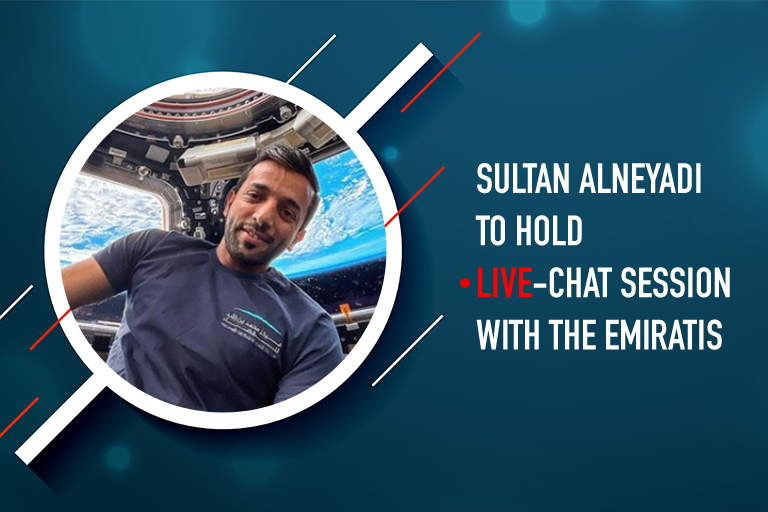
Sultan Alneyadi To Hold Live-Chat Session With The Emiratis
It has been announced by Mohammed Bin Rashid Space Centre (MBRSC) that an exclusive affair called ‘A Call With Space’ with the Emirati astronaut, Sultan AlNeyadi, is set to take place on the 21st of March. This event is arranged for all the citizens of the UAE, where the Emiratis will get the chance to communicate on a live call with the astronaut. As reported by MBRSC, Sultan AlNeyadi will interact with the public right from the International Space Station (ISS), where he is currently, pledging Arab’s longest space task on record.
The live-call event ‘A Call with Space’ is assigned to happen at multiple platforms across the seven emirates of the United Arab Emirates, wherein, Dubai Opera will be the first to organize the event on the 21st of March at 14:30. The public is to be noted that the entrance of the venue will be open from 14:00 onwards. Interested individuals may start to reserve their tickets starting today from the website of Dubai Opera as the slots will be limited. With the organization of this exclusive occasion, the coordinators hope that it will serve as a memorable experience, especially for those who aspire to be astronauts in the future or people who are interested in space in general. Anyone who is interested to learn more about International Space Station (ISS) is also welcome to take part in the event.
According to a statement given by the Director General of MBRSC, Salem Humaid Al Marri, “This initiative is a powerful testament to MBRSC’s unwavering commitment to making space accessible for all. By sharing Sultan’s journey into space, we aim to inspire not only the next generation of space enthusiasts but also the wider community. Through such events, we hope to ignite a lifelong passion for space exploration and foster a culture of curiosity, innovation, and exploration in the UAE. We aim to encourage young minds to dream big and pursue their ambitions in the realm of space and beyond.”
In the course of the event, participants will be given the chance to interview Sultan AlNeyadi about anything that is related to his career life. It could be about his lifestyle and activity on the International Space Station, his daily life as an astronaut, the scientific study performed in zero gravity, and the obstacles the astronauts go through to survive in space.
The UAE Astronaut Programme, governed by MBRSC (Mohammed Bin Rashid Space Centre) beneath the UAE’s National Space Programme, trains Emirati astronauts to tackle reinforced assignments to the ISS and more terminals in space. The programme is financed by the Telecommunications and Digital Government Regulatory Authority (TDRA)’s ICT Fund. Through the sponsorship, they strive to contribute towards the analysis and advancement of the ICT division in the seven Emirates and boost the country’s amalgamation on the international platform.
Sultan AlNeyadi is the second Emirati and the only second Arab to join the orbiting science laboratory to date. Sultan, who also participated in the MBRSC’s UAE Astronaut Programme, entered the ISS on the 3rd of March. It is envisioned that his assignment, which is Arab’s longest space task on record, would strengthen the status of the UAE as a supreme space-faring country in the Middle East.
In the last few years, the UAE has been prospering in establishing multiple space missions, starting with the achievement of Hazzaa Al Mansoori, the country’s first astronaut. Hazzaa Al Mansoori concluded his eight-day assignment to the ISS on September 2019, which grabbed the attention from all over the world. To add further, the country launched a robotic probe named Hope or Al-Amal to Mars on February 2021, honouring the first interstellar task by an Arab nation. MBRSC was in charge of the outline, improvement, and functioning of the mission. The spacecraft has been scrutinizing the atmosphere and atmospheric pressure of Mars for the last two years. In addition to these, MBRSC has also successfully managed multiple projects of launching satellites like DubaiSat-1, DubaiSat-2, and KhalifaSat.
 Previous Article
Previous Article